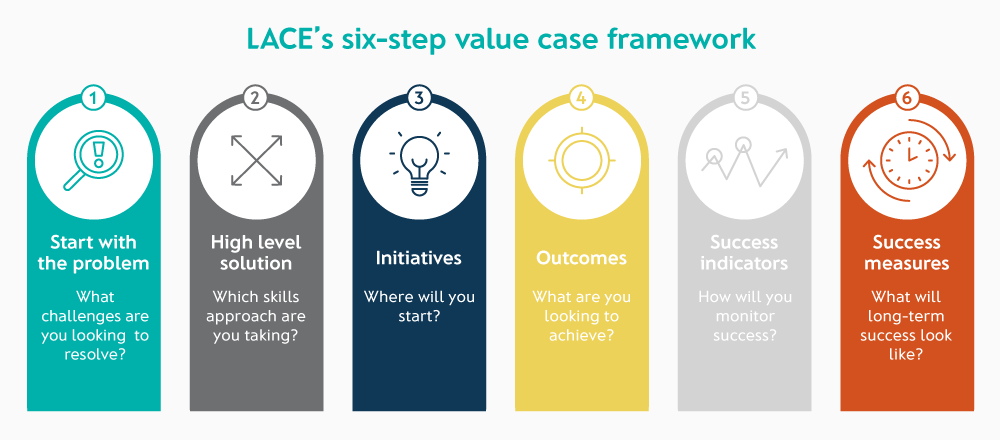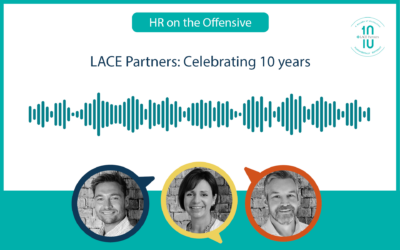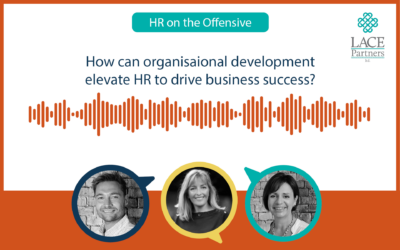Part of our Becoming skills-powered series, this article and its downloadable toolkit unpack the LACE way of building a robust skills strategy and business case – or as we call it – value case for skills-based approaches to talent management.
We are proudly introducing our Skills-powered toolkit, designed to give you a practical guide on how to make a robust case for taking a skills-based approach and gain buy-in from your stakeholders.
It helps you identify your business drivers to determine which skills solutions will push the needle on your strategic outcomes as well as how to monitor and measure long-term success.
What are you left with? A compelling skills value case. At LACE we talk about building a ‘value case’ rather than a ‘business case’ because the value case has so many more components to it.
Download our skills- powered toolkit to:
- Determine which skills solutions are right for your business
- Understand our six key skills approaches, from skills-based hiring to talent mobility
- Create a skills strategy aligned with your business strategy
- Unpack what outcomes and ROI you can expect, and how to track them
- Build a value case for skills using our template!
LACE’s six step value case approach for skills approaches:
While a traditional business case is usually focused on the financial requirements of any justification of spend, a value case looks more holistically, considering other areas such as experience, the benefits of making the change, the value you will bring to the organisation, as well as the overall cost of the project.
To make this simple and practical, we’ve developed our six-step approach:

How do you measure success for skills-based approaches?
Building a skills-powered organisation is an ongoing journey. To stay on track, you need to define success metrics specific to your goals. These metrics will vary depending on your chosen solution and the skills you’re targeting. Here are some examples:
- Productivity: Increased output, sales figures, or completed activities
- Talent mobility: Increased employee retention and movement within the organisation
- Diversity and inclusion: Growth in a diverse talent pool or more diverse customer base
- Employee engagement: Improved employee satisfaction and morale
By establishing clear metrics, you can track progress, measure the effectiveness of your skills-based approach, and demonstrate the return on investment (ROI) to stakeholders.
Download our toolkit for examples of not only the overall success metrics you may be aiming for but also examples of how you can monitor success along your skills journey.
Building a future-proof workforce
By focusing on business drivers, crafting a compelling skills value case, and establishing clear metrics, you can embark on the path to becoming a skills-powered organisation. This approach will empower your workforce to adapt, innovate, and drive your organisation’s success in the face of an ever-changing landscape.
Ready to take the first step? Download our toolkit below or talk to us about how you can build a robust skills strategy and value case that drives wider business success.






